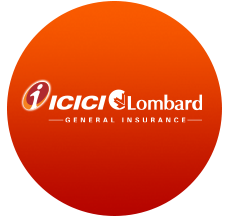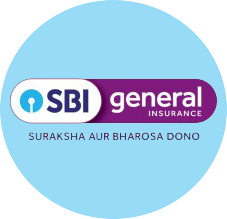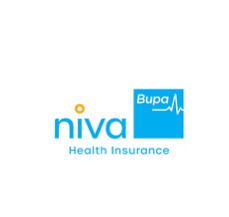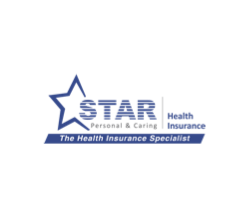-
Customer Service Contact us Service request Locate a branch
Find all the help you need
Scan the QR, get our app, and find help on your fingertips

Help CenterSupport topics, Contact us, FAQs and more
-
Login
Are you ready for an upgrade?
Login to the new experience with best features and services
-
Login
Are you ready for an upgrade?
Login to the new experience with best features and services
- Accounts
-
Deposits
IDFC FIRST Bank Deposits
View all Deposits -
Loans
IDFC FIRST Bank Loans
View all Loans - Wealth & Insure
-
Payments
IDFC FIRST Bank Payments
View all Payments -
Cards
IDFC FIRST Bank Cards
View all Cards - Blogs
- Corporate Account
-
Cash Management Services
IDFC FIRST Bank Cash Management Services
View all Cash Management Services - Supply Chain Finance
-
Corporate Lending
IDFC FIRST Bank Lending
View all -
Treasury
IDFC FIRST Bank Treasury
See more details - NBFC Financing
Support topics, Contact us, FAQs and more
- IDFC FIRST Bank Accounts
-
Savings Account
-
Corporate Salary
Account -
Senior Citizens
Savings Account -
First Power
Account -
Current Account
-
NRI Savings
Account -
TASC Institutional
Account -
Savings Account
Interest Calculator
- IDFC FIRST Bank Deposits
-
Fixed Deposit
-
Recurring Deposit
-
NRI Fixed Deposit
-
Safe Deposit Locker
-
FD Calculator
-
RD Calculator
- IDFC FIRST Bank Loans
-
Personal Loan
-
Consumer Durable
Loan -
Home Loan
-
Business Loan
-
Professional Loan
-
Education Loan
-
New Car Loan
-
Pre-owned Car Loan
-
Two Wheeler Loan
-
Pre-owned Two
Wheeler Loan -
Commercial Vehicle
Loan -
Gold Loan
-
Loan Against Property
-
Easy Buy EMI card
-
Personal Loan
EMI Calculator -
Education Loan
EMI Calculator -
Home Loan
EMI Calculator -
EMI Calculator
-
Personal Loan Eligibility Calculator
- IDFC FIRST Bank Wealth & Insure
-
FIRST Select
-
FIRST Wealth
-
FIRST Private
-
Mutual Funds
-
Sovereign Gold Bond
-
Demat Account
-
Term Insurance
-
Life Insurance
-
Health Insurance
-
General Insurance
-
Bonds
-
Loan Against
Securities -
Portfolio Management
Service
- IDFC FIRST Bank Payments
-
FASTag
-
Credit Card
Bill Payments -
UPI
-
Funds Transfer
-
Forex Services
-
Pay Loan EMI
- IDFC FIRST Bank Cards
-
Ashva :
Metal Credit Card -
Mayura :
Metal Credit Card -
FIRST Millennia
Credit Card -
FIRST Classic
Credit Card -
FIRST Select
Credit Card -
FIRST Wealth
Credit Card -
FIRST WOW!
Credit Card -
Deals
-
Debit Cards
-
Co-branded Cards
-
Credit Card
EMI Calculator -
FIRST Corporate
Credit Card -
FIRST Purchase
Credit Card -
FIRST Business
Credit Card
- Premium Metal Credit Cards
-
AshvaLifestyle1% Forex₹2,999
-
MayuraLifestyleZero Forex₹5,999
-
FIRST PrivateInvite Only
- Best for travellers
-
IndiGo IDFC FIRST Dual Credit CardTravelLifestyle₹4,999
-
MayuraZero ForexMetal₹5,999
-
Ashva1% ForexMetal₹2,999
-
FIRST WOW!Zero ForexTravelLifetime Free
-
FIRST SWYPTravel OffersEMI₹499
-
FIRST Select1.99% ForexLifestyleLifetime Free
-
FIRST Wealth1.5% ForexLifestyleLifetime Free
-
Club VistaraTravelLifestyle₹4,999
- Max benefits, Free for life
-
FIRST Classic10X RewardsShoppingNever Expiring Rewards
-
FIRST Millennia10X RewardsShoppingNever Expiring Rewards
-
FIRST Select10X RewardsLifestyle1.99% Forex
-
FIRST Wealth10X RewardsLifestyle1.5% Forex
-
FIRST WOW!RewardsTravelZero Forex
-
LIC ClassicRewardsInsuranceShopping
-
LIC SelectRewardsInsuranceShopping
- Reward Multipliers
-
AshvaLifestyleMetal₹2,999
-
MayuraLifestyleZero Forex₹5,999
-
FIRST ClassicNever Expiring RewardsShoppingLifetime Free
-
FIRST MillenniaNever Expiring RewardsShoppingLifetime Free
-
FIRST SelectNever Expiring RewardsLifestyleLifetime Free
-
FIRST WealthNever Expiring RewardsLifestyleLifetime Free
- Rewards & Credit on UPI
-
IndiGo IDFC FIRST Dual Credit CardUPITravelDual cards
-
FIRST Power+FuelUPI₹499
-
FIRST PowerFuelUPI₹199
-
FIRST EA₹NVirtual1% Cashback₹499
-
FIRST DigitalVirtualUPI₹199
- Fuel and Savings
-
FIRST PowerRewardsUPI₹199
-
FIRST Power+RewardsUPI₹499
-
LIC ClassicRewardsInsuranceShopping
-
LIC SelectRewardsInsuranceShopping
- Express and Flaunt
-
AshvaMetal1% Forex₹2,999
-
MayuraMetalZero Forex₹5,999
-
FIRST SWYPEMIOfferMAX₹499
-
FIRST MillenniaRewardsShoppingLifetime Free
- FD Backed rewarding Credit Cards for all
-
FIRST EA₹NVirtualCashback₹499
-
FIRST WOW!Zero ForexTravelLifetime Free
-
CreditPro Balance TransferTransfer & SaveReduce InterestPay Smartly
- IDFC FIRST Bank NRI Forex Solutions
-
Send money to India-Wire transfer
-
Send money to India-Digitally
-
Send money abroad
-
Max Returns FD (INR)
- IDFC FIRST Bank MSME Accounts
-
Platinum Current
Account -
Gold
Current Account -
Silver Plus
Current Account -
Merchant Multiplier
Account -
Agri Multiplier
Account -
TASC Institutional
Account -
Dynamic Current
Account -
World business
Account -
First Startup
Current Account
- IDFC FIRST Bank Business Loans
-
Business Loan
-
Professional Loan
-
Loan Against Property
-
Business Loan for Women
-
Working Capital Loan
-
Construction Equipment Loan
-
Machinery Loan
-
Healthcare Equipment Loan
- IDFC FIRST Bank Business Solutions
-
Payment Solutions
-
Tax Payments
-
Doorstep Banking
-
Point of Sale (POS)
-
Escrow Accounts
-
NACH
-
Payment Gateway
-
UPI
-
Virtual Accounts
-
As per amendment in the Income Tax Rules, PAN or Aadhaar are to be mandatorily quoted for cash deposit or withdrawal aggregating to Rupees twenty lakhs or more in a FY. Please update your PAN or Aadhaar. Kindly reach out to the Bank’s contact center on 1800 10 888 or visit the nearest IDFC FIRST Bank branch for further queries.
-
-
Most Searched
Sorry!
We couldn’t find ‘’ in our website
Here is what you can do :
- Try checking the spelling and search
- Search from below suggestions instead
- Widen your search & try a more generic keyword
Suggested
Get a Credit Card
Enjoy Zero Charges on All Commonly Used Savings Account Services
Open Account Now

Good health guides us towards prosperity
At IDFC FIRST Bank, we offer comprehensive
health insurance plans for everyone
-
Expert advice on curated product offerings
-
Multiple sum insured options along with tax benefits
-
Avail unique covers viz. unlimited reset benefits, expenses for modern treatments viz. Oral Chemotherapy, Robotic Surgeries etc
-
Cashless hospitalization across network hospitals
-
Expert advice on curated product offerings
-
Multiple sum insured options along with tax benefits
-
Avail unique covers viz. unlimited reset benefits, expenses for modern treatments viz. Oral Chemotherapy, Robotic Surgeries etc
-
Cashless hospitalization across network hospitals
Health Insurance
Health emergencies do not come with prior notice. With sedentary lifestyles, more and more people are becoming prone to lifestyle diseases in India. And with the increased demand for quality healthcare services, medical treatment has become quite expensive, especially in private hospitals. Without the support of insurance, the hospital bills are enough to drain one’s savings.
Therefore, a robust family health insurance plan becomes an absolute necessity, as it offers coverage to the insured family members and the policyholder against exorbitant hospitalization expenses in case of an accident or illness.
Health Insurance protects your life savings from the overwhelming medical costs that can occur through a major accident, medical emergency, or a chronic disease. Everyone must either purchase health insurance or risk bankruptcy while compromising greatly with the quality of health care received and future lifestyle. Read More
IDFC FIRST Bank brings you some of the best Health Insurance plans from leading General Insurance companies in the Industry – ICICI Lombard, SBI General & Future Generali and Stand Alone Health Insurance Companies- Aditya Birla Health Insurance, Niva Bupa and Star Health. We aim to provide a curated set of products to simplify the selection process for our customers.Read Less
Our Solutions
Calculator
Find the right cover amount for yourself

Disclaimer & Commission
GUIDE FOR BUYING A BEST HEALTH INSURANCE PLAN

Comprehensive health insurance plans come packed with a wide variety of features to choose from. The features you choose determine the quality of care you receive during hospitalisation and the amount you pay for the care you receive. Below are some of the factors we think you should consider while opting for health insurance for parents.
Features offered: Depending on your life stage and lifestyle needs, you can choose which features suit your requirements. All health insurance plans cover in-patient treatment, pre-post hospitalisation, ambulance cover etc. Some of the features are specific only to certain plans, such as - maternity cover, Outpatient Treatment cover, cover for treatment overseas, inflation-linked health insurance sum insured, restore benefit, convalescence (recuperate) benefit, cover for Alternate Treatment (AYUSH), Nursing at Home, Compassionate Visit etc.
Caps and Sub-limits: Caps and sub-limits are the thresholds set on various policy-covered expenses like room rent and ambulance fee. Should you prefer a no-submit, no room-rent capping plan, the premium you pay would be more than for a plan with room-rent capping and other applicable sub-limits.
Claim settlement Record: The claim settlement ratio is a metric to gauge the percentage of insurance claims an insurer has settled during a financial year against the number of claims it received in the same period including pending claims from last year.
Medical check-up: It has been advised that even if you are healthy, a health check-up is done every year. While comparing health insurance plan features and premium, it should be checked if the health insurance plan has inbuilt medical check-up(s) or not.
Cashless Hospital Network: Check if hospitals around you are included in the Cashless Network Hospital empanelled by the insurance company you are considering buying the online health insurance plan from. As the claim settlement is directly between the hospital and your insurer, you wouldn’t have to worry unnecessarily about sharing claim documents with the insurer.
Waiting Period(s): An initial waiting period of 30 days also known as the cooling period applies to all health insurance policies. Only claims related to an accidental hospitalization are considered during these 30 days.
In addition to the initial waiting period, Health Insurance plans also have a waiting period of 1 or 2 years for Specified illnesses such as ENT disorders, hernia, osteoporosis, etc.
Hospitalisation expenses arising out of Declared and Accepted pre-existing diseases are usually covered after a waiting period of 2 or 4 years depending on the insurer.
FREQUENTLY ASKED QUESTIONS
Types of Health Insurance Plans
Indemnity Plan: These are traditional health insurance policies that protect the insured against unexpected and sudden medical expenses by reimbursing the hospitalization charges incurred by the insured up to the limit of the Sum Insured. These plans can be taken on an individual basis or family floater basis.
In a family floater policy, the entire family is covered on the payment of a single premium. The sum insured called, “floater Sum Insured”, covers the entire family under a single umbrella cover. The floater Sum Insured can be used in case of multiple hospitalizations of all members of the family.
Super Top Up Plan: In a Super Top Up Plan, the insured will pay health insurance deductible before the insurance company picks up the remainder of your bill. The insured is free to choose this threshold value, called “deductible” before any hospitalisation claim up to the limit of Sum Insured shall become payable. As a portion of the risk, as “deductible”, is borne by the insured himself/ herself, these plans are cheaper when compared to regular indemnity health insurance policies.
Benefit Plan: In these plans, a pre-defined fixed benefit becomes payable on a pre-defined health insurance risk viz. 24-hour hospitalisation, diagnosis of critical illness, accidental injuries etc. E.g. Rs. 1,000 becomes payable on 24-hour hospitalisation for each day insured is hospitalised for a maximum of 30 days in a policy year.
Key Benefits of Health Insurance Plans
Comprehensive health insurance plans come packed with features to assist a person in managing expenses associated with medical emergencies.
Following are the key health insurance benefits that one can consider:
Cashless Medical Treatment: Every medical insurance company has tie-ups with various hospitals across the country called 'empanelled hospitals/network hospitals'. In this network of hospitals, you can avail cashless medical treatment.
Coverage of Pre and Post-Hospitalization Expenses: This feature of a health insurance policy takes care of expenses incurred on both pre and post-hospitalisation. It takes into account the costs incurred during a certain number of days both before and post-hospitalization as part of the claim, provided the expenditures are related to the covered disease/illness.
Ambulance Fee: Transportation fees incurred by the insured is covered by the insurer as per policy.
No Claim Bonus: NCB (or No Claim Bonus) is a bonus provided to the insured if no claim is filed for any treatment in the previous policy year. The reward is offered as an increment in the sum assured.
Medical Check-Up Facility: Medical insurance plans offer the insured to receive regular medical check-ups. A free check-up facility is provided by some insurers, or you can get it as an add-on benefit.
Health Insurance Tax Benefit: You can save up to a maximum of Rs. 25,000 in a financial year for yourself, your family and dependents below the age of 60 years against the premium paid towards health insurance. If any of your age is above 60 years, then this benefit increases to Rs. 50,000.
If you are paying the medical insurance premium for your parents, then you are eligible for tax exemption up to Rs. 50, 000 in a year under section 80D, provided your parents are senior citizens.
*Tax benefit is subject to changes in tax laws
Pre-Existing Disease Cover: Health insurance plans consider pre-existing diseases, e.g. diabetes, hypertension, etc., for claims after an initial waiting period as per policy guidelines.
Preventive Healthcare: Nowadays, we have preventive health care check-ups that take care of you before you fall sick. Preventive care, such as regular health check-ups, wellness benefits, consultation fees, etc., are offered under some health insurance plans.
Health Insurance Eligibility Criteria
The eligibility criteria for health insurance depends on the age of the customer, pre-existing illnesses, current medical conditions, etc. A medical test is conducted by the health insurance companies to ascertain the medical condition of the applicant.
Age Criteria- Entry age for adults and children is based on the plan and insurer.
Pre-medical Screening- A pre-medical screening is conducted by the health insurance companies to ascertain the medical condition of the applicant above a certain age as per the insurer. The criterion for individual and family floater health plans may vary as per the policy terms and conditions.
Pre-existing Diseases- When buying the policy, you need to disclose the health diseases that you have or any pre-existing illness that you or your family members have. Do not keep it a secret as it may cause problems at the time of claim settlement. It can even lead to the rejection of your claims.
Pointers to make an informed decision:
Select the Appropriate Sum Assured: You and your family must be adequately covered. The Sum Insured requirement for a family of 4 members in a metropolitan city would be higher than an individual residing in a rural area.
Provide complete & correct details: Insurance is based on the principle of utmost good faith implying it is the onus of the insured to provide accurate information regarding health status in the proposal form. The insurance company has the right to reject any claim if it finds information/ medical history submitted at the time of proposal is inaccurate.
Keep in mind the factors that influence the premium: A few factors that influence the premium of a health insurance plan include the proposer’s age, medical history, family health history, lifestyle, Sum Insured chosen, add-ons chosen etc. These factors are taken into account before the premium amount is determined.
Some Myths about Health Insurance
I am healthy, and I don't need Health Insurance
Despite taking good care of your health, there are numerous unforeseen circumstances like seasonal illnesses, dengue, malaria, or an accident that can hit anyone at any time. Nowadays, hospitalization expenses are not easy to pay off. Even 2-days of hospitalization expenses would cost you somewhere between INR 60,000 to INR 1 lakh and even more (depending on the type of illness) whereas, an insurance premium usually would be a fraction of a cost that one would incur in event of a hospitalisation.
My Health Insurance will cover all the medical expenses
All health insurance plans come with their own set of exclusions and limitations. It is required that you check all the policy details and the coverage that is mentioned in the plan. The insurer will only compensate for the expenses that are covered in the policy and up to the specified limit.
Declaration of Pre-existing Diseases
It is essential to declare all the pre-existing diseases in the proposal form. One must mention pre-existing diseases clearly before buying an online health insurance policy. Inadequate information can lead to the rejection of the claim and can cost more than the expected amount.
Medical Insurance will only cover Hospitalization Expenses
These days most health insurance plans cover medical expenses for hospitalization as well as medical expenses incurred in Outpatient Treatment care. Most insurers these days’ cover listed day-care procedures as well, where due to advancement in medicine it is not required to be hospitalized for 24-hours
I am covered under a Group or Corporate Health Insurance Plan
Most people rely on the health insurance plan that is provided by their employer. It is important to know that a group health insurance policy comes with a set of limitations. It may not offer coverage to your family members, the sum assured may not be sufficient, it may not cover critical illnesses. Also, getting health insurance coverage after retirement or losing a job can prove to be an expensive affair.



















